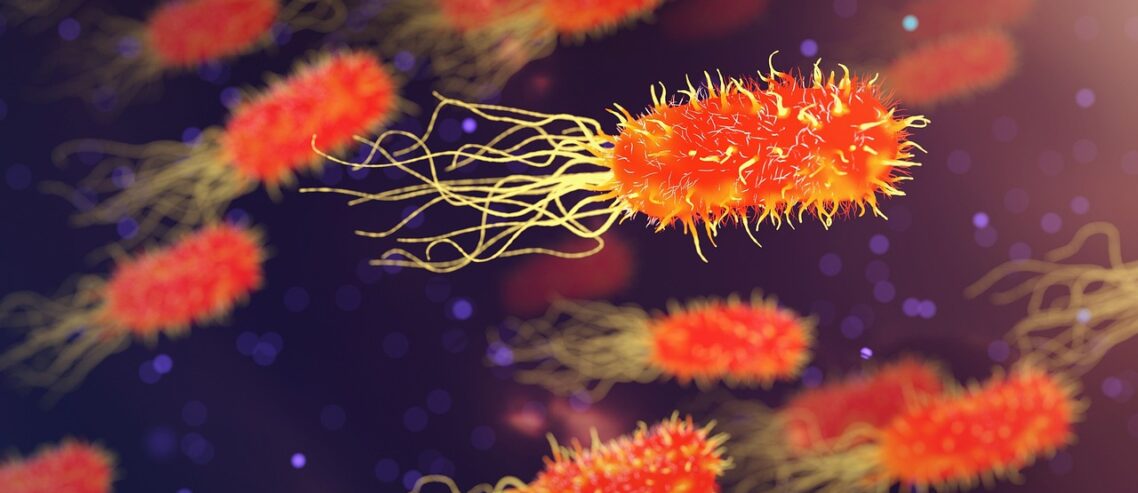Leptospirosis in Thailand
A bacterial infection, leptospirosis, is spread through the urine of domesticated animals such as dogs, farm animals, and small rodents. A common disease affecting animal lovers and an occupational hazard to outdoor workers, the disease thrives in warm parts of the world, such as Southeast Asia.
During periods of heavy rain or floods in Thailand, cases of leptospirosis tend to increase as people become more exposed to contaminated water sources used for farming, consumption, or bathing.
This Pacific Prime Thailand article will provide you with an overview of the causes of leptospirosis, the people most at risk of the disease, the symptoms, methods of diagnosis, means of prevention, and prevalence in pets.
Cause and Transmission of Leptospirosis
Animals tend to carry the Leptospira bacteria within their kidneys, which are then typically discharged as urine into soil and water, acting as common starting points for disease transmission.
People with open wounds, dry skin, scabs, or scratches are most at risk, as the bacteria can easily enter the body through these areas, especially when handling soil or water contaminated with an infected animal’s urine. The bacteria can also enter through the eyes, nose, mouth, or genitals.
It is important to note that the disease can be spread between humans through sexual contact and breastfeeding. Couples and mothers are therefore advised to be wary of any symptoms while maintaining safe and hygienic practices.
People Most at Risk of Leptospirosis
The risk of contracting the disease is especially high if you participate in recreational activities surrounded by animals or in warm and tropical outdoors where farmland, lakes, or rivers are nearby.
Moreover, apart from being a recreational hazard, this disease is also an occupational hazard, and people in the following professions are most at risk of infection:
- Underground and sewage workers
- Slaughterhouse workers
- Miners
- Military personnel
- Fish workers
- Crop farmers
- Dairy farmers
- Veterinarians and animal caretakers

The Symptoms of Leptospirosis
The symptoms of Leptospirosis can be differentiated into phases. While infection can appear to be asymptomatic, people who are infected typically show the following symptoms:
Phase 1: The Leptospiremic Phase
Following an incubation period of approximately 2-14 days, people generally experience flu-like symptoms. Called the leptospiremic phase, this is a period during which the bacteria migrate from the bloodstream to the organs.
The common symptoms that may appear during this phase are:
- Red eyes
- Sore throat
- Muscle aches
- Chills
- Coughs
- Chest pain
Phase 2: The Immune Phase
The second phase—the immune phase—is a result of inflammation caused by the immune system as it tries to remove the bacteria from the body. If left untreated, people may also develop severe conditions such as internal bleeding and kidney damage.
The symptoms that may appear during this phase are:
- Yellowing of skin
- Jaundice
- Headaches
- Hematuria
- Muscle aches
- Lung problems
- Skin rashes
- Diarrhea
- Vomiting
Diagnosing Leptospirosis
Given that the leptospirosis bacteria travel through the blood and accumulate within the kidneys, which are responsible for the cleansing of the blood, your blood and urine are most likely to show traces of the disease. A doctor may thus diagnose leptospirosis with blood, urine, or imaging tests.
Here are some of the common tests conducted:
Blood and urine tests: Your doctor will take your blood or urine sample for lab tests.
Imaging tests: In the case of severe leptospirosis, chest X-rays or CT scans may be used to assess the damage to your internal organs.
How Leptospirosis Is Treated
To treat the disease, doctors commonly prescribe antibiotics and monitor the patient’s symptoms afterward. The types of antibiotics used in treatment include:
- Doxycycline
- Penicillin-G
- Amoxicillin
- Ampicillin
- Ceftriaxone
In the case of lung infections, mechanical ventilators may be used to assist patients who are struggling to time their breaths. While connected to the ventilator during their sleep, medicine will also be administered through an intravenous (IV) line.
If organ damage has been caused, a plasmapheresis or plasma exchange machine will be used on patients. By attaching a tube to a vein, this procedure separates plasma from blood and replaces the old plasma with new plasma. The blood is then returned to the body through a separate tube.
How to Prevent Leptospirosis
One way of preventing this disease is by avoiding contaminated water, and making sure that water is clean before consumption. This is especially important in developing countries, given that freshwater areas are prone to contamination.
Saltwater, on the other hand, is safe. This is because leptospirosis bacteria are unable to survive in cold temperatures and waters with high levels of salinity.
It is also important to keep away from stray animals, especially wild rats, as wild rats and rodents of all kinds are the primary carriers of the leptospirosis bacteria. Furthermore, farm animals in developing countries are often unvaccinated, so it is important to avoid animal bites and fluids.

Can Pets Get Leptospirosis?
In short, all animals can be carriers of leptospirosis. Similarly, the disease can be spread between humans through contact with urine. What’s more, given that the bacteria can survive in water and soil for weeks or months, pets can be infected simply by running in contaminated areas.
For pets, the symptoms are as follows:
- Diarrhea
- Belly pain
- Vomiting
- Stiffness
- Fevers
Not every pet that is infected will show symptoms of leptospirosis, and every suspected infection should be confirmed and treated by a veterinarian, who will take appropriate actions depending on the conditions.
Conclusion
From pet lovers and outdoor goers to professionals in hazardous settings and farmers, everyone at risk should bear leptospirosis in mind because it hits hard and fast. This is especially true for those living in tropical climates, as the heat puts them at an even higher risk for leptospirosis.
In addition to leptospirosis, you should also read up on the common diseases and medical conditions in Thailand, including rabies, and food poisoning in order to improve your chances of preventing them.
In order to avoid racking up hospital bills for unpredictable diseases, especially in countries where treatment can be expensive such as Thailand, getting covered with expat health insurance, international health insurance or family health insurance for your loved ones is the safest and most cost-efficient choice.
To get started, contact us or compare quotes today.
Frequently Asked Questions
How do you get leptospirosis?
Given that leptospirosis bacteria thrive in wet, warm, and tropical climates, people can easily get infected through contact with water, soil, or objects contaminated with animal urine.
What are the signs or symptoms of leptospirosis?
While not every person infected with leptospirosis will show symptoms, the general symptoms are high fevers, chills, muscle aches, headaches, vomiting, jaundice, red eyes, and stomach pain.
Can leptospirosis go away on its own?
While it is best to receive treatment from a doctor if infected, most cases of mild leptospirosis typically take a few days to a few weeks to heal, whereas severe cases take several months.
- The Thai Senate has Approved a Historic Bill to Legalize Marriage Equality in Thailand - June 20, 2024
- Pacific Prime Thailand awarded the AXA Top Sales International Broker Award - June 14, 2024
- Leptospirosis in Thailand - August 30, 2023





Comments
Comments for this post are closed.